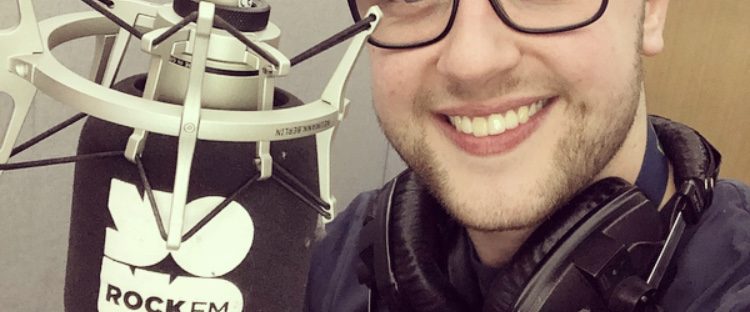Manchester Met journalism graduates reporting Coronavirus stories across our region
- Newly-graduated journalists 'privileged' to be working on the biggest story of a generation
- Seeking out positive commmunity news is the priority for local reporters in difficult times
- Disinfecting radio studios, recording Coronavirus Reality Checks and getting used to working from home – our graduates share their stories.

They may have only started their first journalism job a few months, or even weeks, ago but already Man Met Uni’s graduates are making their mark in the communities they serve.
Ramazani Mwamba was delighted that his first job months after graduating with an MA in Multimedia Journalism was at the Manchester Evening News as a community news reporter covering Salford. But he could never have predicted how his role would evolve whilst still only a trainee.
“It’s been the perfect time to be a community reporter because people have banded together and are offering help in all sorts of ways.
“There was a carehome that put a message on Facebook asking people to send letters to the residents to raise their spirits because they can’t receive visitors. I saw it, contacted them, spoke to the staff and pushed it out on FaceBook last week. I got a message over the weekend about all the letters they’d received so I did a follow-up piece about that.
“A lot of people are messaging me with story tips. They know we need to report about the new cases, deaths, price hiking, stockpiling. But they also want the uplifting stuff. I feel kind of privileged that these people are bringing these stories to me.”

Dan Davies compiles and reads the hourly news bulletins for local commercial radio stations, CFM in Cumbria and Rock FM in Lancashire, from the main Bauer Media Group newsroom in Manchester’s Castlefield. He joined the newsroom in October last year as a reporter having completed his Masters a few weeks earlier. He stepped into the newsreading role a couple of months ago.
“I feel like I’ve been thrown in the very, very deep end. It feels like I’m reporting for Coronavirus FM because that’s all people want to hear about. And the job is more important than ever.”
As well as hourly bulletins, Dan is also recording Coronavirus Reality Checks which are broadcast on the stations four times a day.
“There are only six of us in the huge building at the moment – just the newsreaders. The reporters are working from home. It’s very lonely. We’re sitting very far apart. We have to wipe down the studio when we leave. So it’s all very strict in terms of hygiene.”

Danielle Wroe only started her job as community content curator for Reach Plc in mid-February just as people were starting to talk about the new mystery illness. Little did she suspect that it would soon take over her life.
“At first, I felt very overwhelmed. I’ve really had to force myself to think positively about it. I’m working nine to five, I clock off and then in an hour the news is on providing me with more Coronavirus reports. So I think you do have to block work off and understand it is also an exciting time to be a new journalist.
“I’m working on a story at the minute about a lady in Denton who’s getting people to sponsor handcreams which she then donates to NHS workers. It’s just little things like that that show people want to help in whatever ways they can.
“These stories get overlooked by the bigger publications. But we’re able to pick up on them and be the light in the dark, I guess, at a time when people do need to come together rather than just focusing on the negatives.”
The response from the audience shows their hard work is much appreciated. Danielle said: “Our engagement has gone through the roof. There’s a lot of people commenting saying they’re enjoying the positive stories. So it’s good that we can provide that for them.”
But it’s a tough time too for journalists who were only just starting to get to know new colleagues and learn the ropes on a demanding new job.
Alex Candlin started work as an apprentice reporter at the Westmorland Gazette just six weeks ago. Now he’s having to work from home alongside two other members of his family whilst updating the website’s live blog about coronovirus.

“I liked being in the office because I needed guidance and I’d ask 20 questions a day about various things. But now I’m at home, I’m trying to be as useful as I can but realising I might have a limited capacity. But I’m still trying to find stories that are useful to people.”
The magnitude of this story is not lost on these young reporters. Dan said: “When this is all over, I’m going to be on a journalistic comedown because I’ll have already hit the top so early in my career. Nothing’s ever going to be bigger than this.”
Ramazani is aware of his responsibility not just to today’s audience but to future generations.
“You’re documenting human history on a local scale.
“This is something that people in Salford decades from now, if they want to find out what happened here during the Coronavirus pandemic, they’ll look in the Mancheter Evening News archive and find stories you wrote about a care home that their nan goes to.
“So it’s overwhelming. It’s a great privilege. But you only think about all that stuff once it’s done.”


